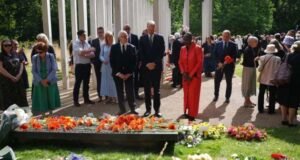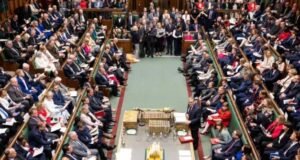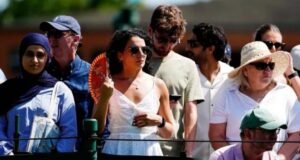Sheikh Dabir Miah is an unassuming pleasant individual who has led an uneventful and ordinary, life in Tower Hamlets for the past forty plus years. However, it was not always like that. 37 years ago, this week he found himself in the cusp of racist murder, turbulent events and a struggle for rights that would go on to shape future generations. This movement was unplanned and events of that week would bring together a loose coalition of anti racists and mainly Bangladeshi men in a struggle for greater rights in civic life. They would no longer be passive victims while facing a double whammy of National Front fascism and institutional racism. Mr Miah did not enter into this social and political movement through any political ambitions, or self-aggrandisement. The reason was far more sombre, serious, and immediate.
It was early May 1978, a time of rising racial tension with the NF enjoying popular support. At around 9.30 in the evening of May 4th, Mr Miah heard the most devastating and spine chilling news. His good friend and housemate was no more. The friend was a young machinist. He was walking home at the end of his shift at a factory. This terrible incident occurred in Adler Street, London, just two hours earlier. His friend was stabbed in the neck and stumbled to a nearby bus stop but when his weak fragile body, blood seeping from the cut, could carry him no further he collapsed, slumped over onto the cold hard concrete pavement on Whitechapel Road, the southern part of what is now a day known as Bangla town. His attackers were three local young racists; one was under 16 years old! Another would boast at his trial that he had “attacked Pakis on at least five previous occasions”.
The teenagers, filled with racial hatred whipped up by doc martin wearing NF skinheads picked out a “hard working” and “decent man” who got on well with everyone. Only months earlier he would leave his new wife in Elamor Goan, in Chhatak thana, Sylhet and return to Spitalfields to earn a better living while saving enough to allow his wife to join him in the UK. This was not to be as he was destined to breathe his last besides a main thoroughfare as cars and buses thundered past, their occupants unaware of the tragic event unfolding around them.
The friend we are talking about was a man named Altab Ali! That is it no introduction or prefix before this name is needed. No post augmentation or massaging of words is required. This name can stand on its own. It can tell many stories. It can tell a heart-wrenching story of an ordinary man who went to work but never returned. It can tell remarkable and inspiring decades old stories of a community taking tentative, sometimes wobbly first walk much like baby steps towards a future filled with hope, prosperity and much more. This name is synonymous with a period of community activism and mobilisation.
Mr Miah and I meet at a travel agency owned by his associate Mr Shipon Miah in Bangla town. He offers me a chair and then sits opposite across the width of a desk. He adjusts himself for comfort, swivelling from left to right before finding his ideal position. Leaning forwards he recalls the moments immediately after Altab Ali’s murder. “Those days news travelled slowly nevertheless, I was informed of this tragedy about two hours after it occurred. A few hundred people had gathered around community focal points such as Brick Lane Mosque and the adjacent Bangladesh Welfare Association. The crowd was coming and going while others were milling around in disbelief and shock.” Mr Miah says there was an atmosphere of “sadness mixed with apprehension”.
At the time of his death, Altab Ali was living in Reardon House in Wapping where he shared a flat with his relative. Back those days a ground floor flat was “unsafe and vulnerable” quite often the proverbial brick through the window would intimidate a family or worst still inflict serious injury. Altab Ali’s relative like many others at the time felt safety in numbers so asked him to share his family home in the newly acquired council flat. “We hardly ventured out alone for fear of racial attacks. Many of us felt safer walking in groups.” Mr Miah says those fears were constant had reached such a level that Bangladeshi men felt safe only in company of others. “We prayed to Allah for our safety and a tangible relief was felt when at the end of each day we reached our homes safely in the evening. “At night, we prayed for our safety in the next day”, added Mr Miah.
The softly spoken Mr Miah shared a house in Goulston Street, London, E1, with Altab Ali and said: “1978 was a turning point when there was a self realisation that this country was our home too, he added, “Many of us organised into groups, others took up self defence classes in martial arts whilst others formed vigilante groups. This was a serious situation. The march and demo was also a turning point in political representations.” Many people were “supporting our struggle and I do recall the hard work of Tayabur Rahman, Farid Uddin, Tassaduk Ahmed, Shiraj bhai, Rafique Ullah, Jalal bhai and Zia Uddin Lala from Sylhet.” Mr Miah says there were many others but “regrettably couldnt recall all their names instantly”. The passing years may have eroded some names from his memory but he readily accepts their contribution shouldn’t be forgotten. Mr Miah added: “ I remember, Tarik Ali, an anti Vietnam protester, he helped organise meetings etc and made an impassioned speech at the Hyde Park rally while dripping wet in the pouring rain.”
Altab Ali left behind a large family in Bangladesh. Both his mother and father have deceased leaving behind his two brothers. Siblings bonding is a given but Altab Ali had a very strong bond with his youngest of four sisters. She is now 51 years old, remains an unmarried woman and continues to occupy her murdered brother’s old room; symbolic of her undiminished love for a brother she lost to racists thousands of miles away.
Mr Miah pulls out few old grainy photos of Altab Ali and himself taken on a walk about in Tower Bridge. The photos show two men, Altab Ali clearly the older of two, enjoying the world heritage site sometime around 1977.
“When I stare into these photos or attend the various events marking his life I am extremely happy. I look at the immaculate environs of the park named in his honour and it fills me with enormous pride however, I am reminded of his brothers and sisters and the hard life they live without the financial support of Altab Ali. I think of his two brothers living in a dilapidated house.” Mr Miah seems more focussed and his tone softens as he announces that he is at an advance stage of an endeavour to raise some money to donate to Altab Ali’s family in Bangladesh. He has discussed these plans and ideas with various persons such as Shiraj Hoque of Clifton, where he first proposed this idea. Others he has discussed with include Mr Shueb Chowdhury, proprietor of Channel I television and independent mayor candidate last year. Former Tower Hamlets Councillor Rafique Ullah is also a supporter. “All have welcomed this as a worthy cause and some like Shueb bhai have offered his airwaves free of charge to host a possible live charity programme featuring studio guests and audience.”
As I part company with the 50 plus year old Mr Miah, I too find myself reflecting on the legacy of a man murdered almost four decades ago. An ordinary man living an anonymous and non descript life it seems clear Altab Ali is not a page or chapter in history it is an entire book chronicling the struggles, hope and aspirations of that time and the most defining moments in Bangladeshi life in Tower Hamlets.
 Weekly Bangla Mirror | Bangla Mirror, Bangladeshi news in UK, bangla mirror news
Weekly Bangla Mirror | Bangla Mirror, Bangladeshi news in UK, bangla mirror news








